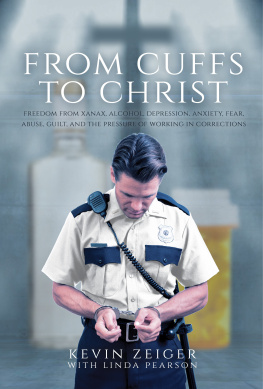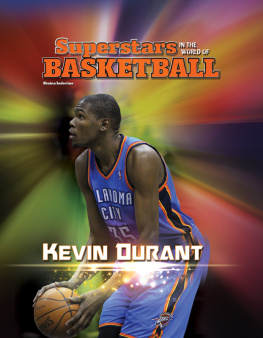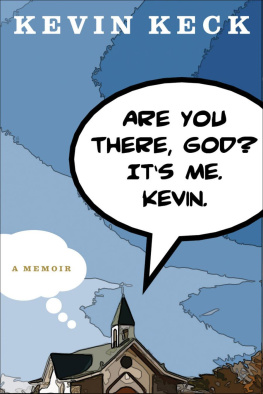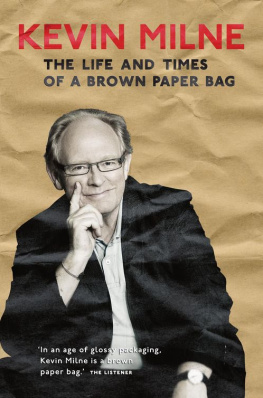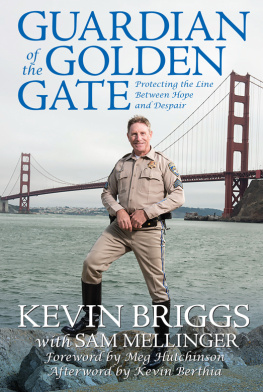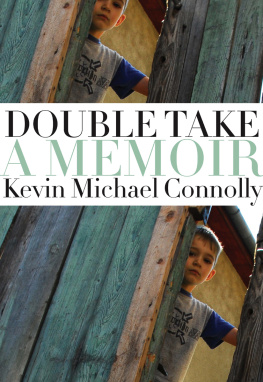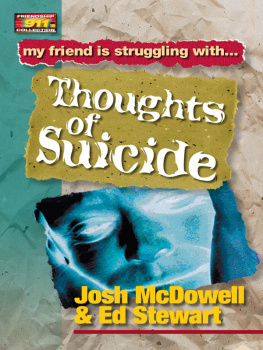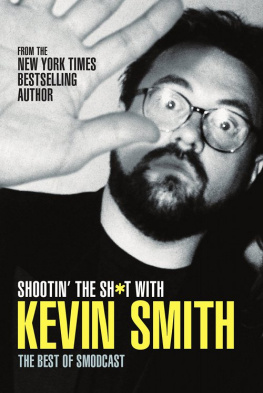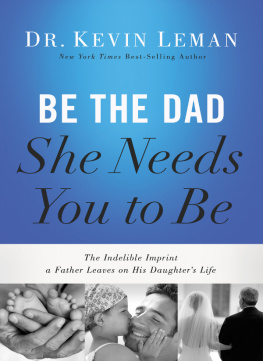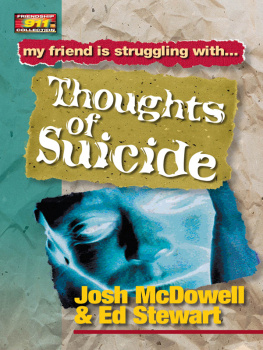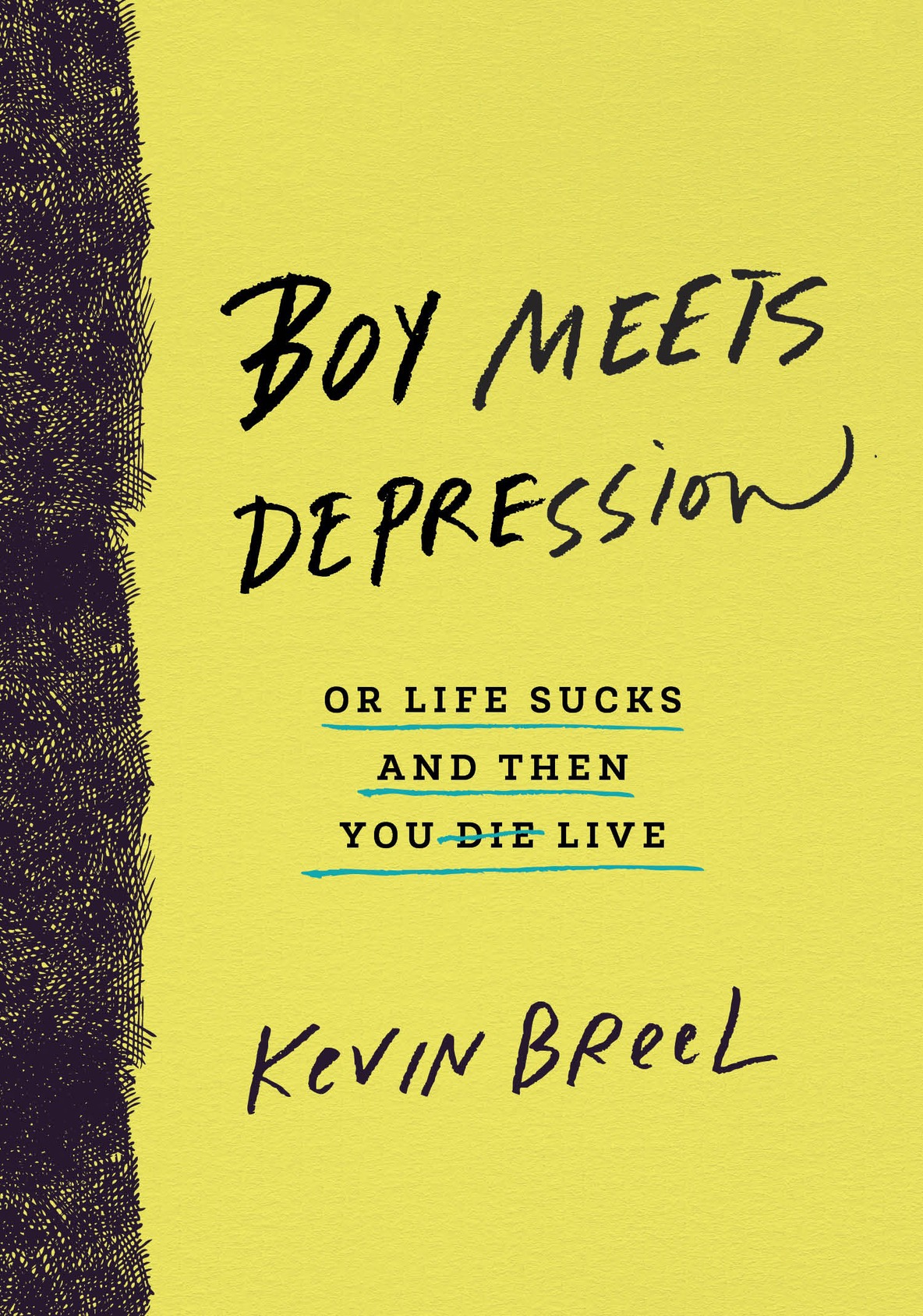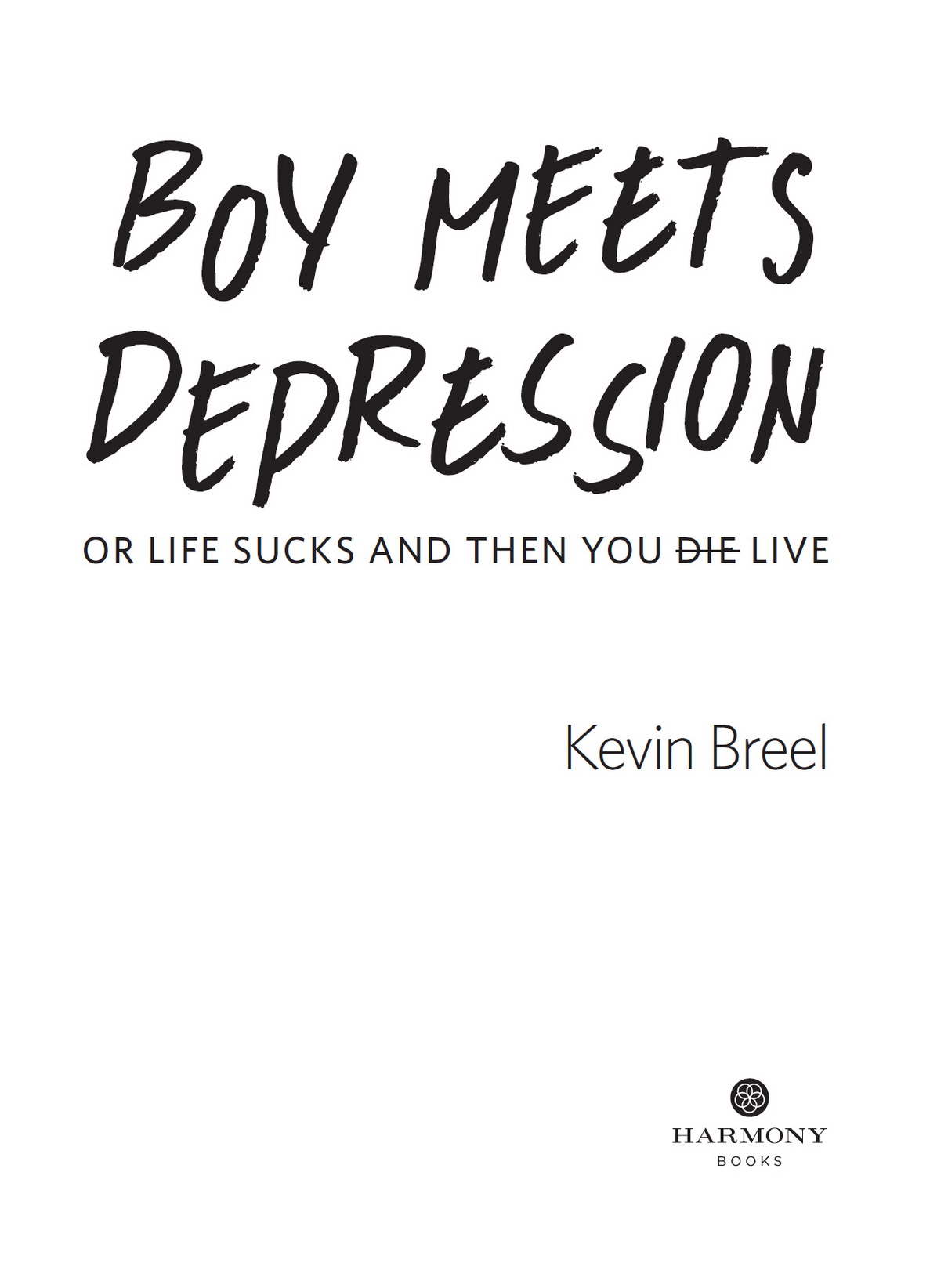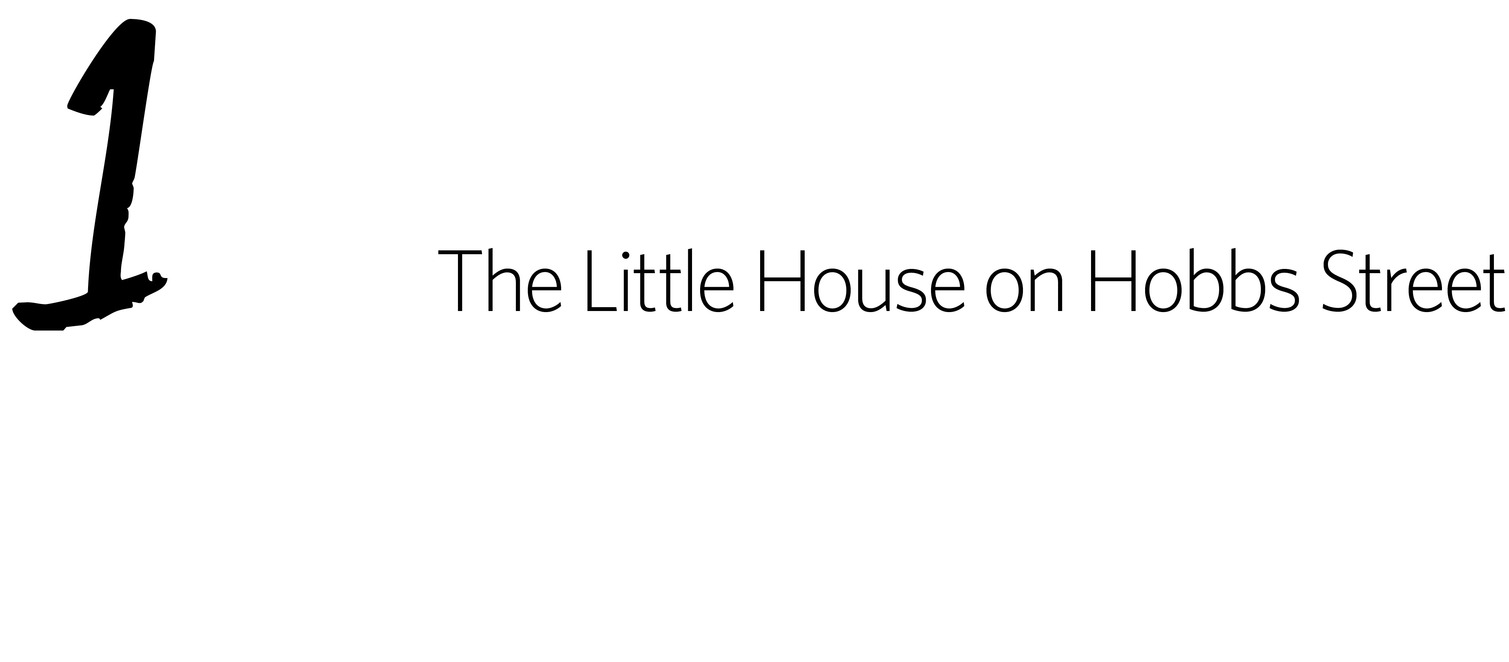All rights reserved.
Published in the United States by Harmony Books, an imprint of the Crown Publishing Group, a division of Penguin Random House LLC, New York.
Harmony Books is a registered trademark, and the Circle colophon is a trademark of Penguin Random House LLC.
Breel, Kevin.
Boy meets depression / Kevin Breel.
1. Breel, KevinHealth. 2. Depression in adolescencePatientsCanadaBiography. 3. Parent and teenagerBiography. 4. Depressed personsFamily relationships. I. Title.
To the reader: may my story meet you somewhere in the middle of yours.


MEMOIRS ARE AN interesting, imperfect sort of thing. I always used to wonder who these people were who wrote about themselves, and why they would ever want to do such a thing. From the outside, it looks impossibly selfish. Yet from the inside, its a bit like pulling your heart out of your chest and gluing it to paper. Plus, when you grab the shovel to start digging up yesterday, you notice that maybe the weirdest part about life is how little of it we actually remember or remember clearly. Seconds turn to minutes and minutes to hours and hours to days, and before long, life has slipped right through your fingers. Trying to go back to the most meaningful moments of our lives, we see just how much has been fractured by memory and the abandonment of time. Writing this book was not unlike being in a river of my weirdest quirks, wondering if at some point that river would meet the sea and I would drown in the disgust and despair of the days that led up to this one. My childhood and teenage years now seem as though they didnt really happen to me. But I know they did, and when I take long enough to get lost in them all over again, I can feel them all the same. Its as if the pain of the past is able to transcend time and healing and show up right back in my heart; uninvited and unwelcome.
Jumping back in and looking at the scenes of my childhood from different camera angles, I felt at times like I was putting together a ten-thousand-piece puzzle without knowing what the final image was supposed to be. But then as each tiny piece fell into its place, I became more and more aware that my life had been carved out of uncertainity and dragged through darkness. And all of those momentseach tiny and individual, just like yourscome together and become a collective. That collective is this book.
Writing this book was like illuminating every path in my life that has led me to pain and then running up and down and then in circles until I got exhausted. Because the truth is that the past is never really dead. We might think it is, that its been hidden for so long that it is surely buried. But it is not. It is always just hanging around, waiting for us, practicing the ways in which it will dig back into our lives. While you can distance yourself, you can never fully disown the experiences behind you. Maybe the real truth is: there is no escaping, only acceptance.
This story is a bit like a broken mirrorjagged, painful, with every piece holding up a reflection. If you see yourself in that reflection, then welcome to the club.
I hope this story makes you feel something that maybe you havent felt for a while. And if you happen to be a kid like me, growing up in a misery that seems like it will never end: I understand you. I get it. And its all going to be okay. Trust me. I used to be the kid who thought his life was never going to be good or mean anything. Every day I felt like I had my face pressed up against the glass of perfection, watching everybody in the world live a life that was poetic and pure while I drowned in my problems. And I hated it. I used to think that my life, the one I desperately wanted, not the one I had, was never going to show up; that it would always escape me and I would spend my entire existence searching for something that would go unfound.
I used to think that maybe life wasnt really worth much. But that was before any of this happened.
RECENTLY, I FOUND out I had colic as a baby. I dont know exactly what this means other than that my mum says it made me cry a lot and I was fairly unbearable. She said one time she had me in a stroller and an older woman from the neighborhood asked if she could peek inside to see me. When she did, I erupted with noises so vile, I almost gave the poor lady a heart attack. So I came into the world kicking, screaming, and crying. And maybe not much has changed since.
I was a bit of an explosion of a child. Small, with slender shoulders and legs that seemed skinnier than my wrists. My hair was long and moplike, usually flopping over my eyes like a crappy, blond curtain. I was quiet and then devastatingly loud. My eyes were far too big for my face and usually found their way toward the floor until I knew for sure that you liked me. I was easily hurt and maybe the most sensitive soul my gender has seen in years, which worked against me in almost every way imaginable. On an average day, I was wearing shorts long enough to cover my kneecaps, a T-shirt, and running shoes with laces double knotted so tight it looked like they were swelling up my ankles. It was as if my whole wardrobe had been constructed with the belief that it was far more important to be prepared for impromptu athletic activity than it was to be socially accepted.
I was also thoughtful. When it was my friends birthdays, I would write them cards. I wrote one friend a poem once. If I went over to someones house, I always let them win at whatever it was we played. Good sportsmanship and all that. I was an uncertain kid, eager to impress and be loved. I navigated the world with an open heart that, unbeknown to me, was going to be Velcro to the bad stuff and Teflon to the good. Pretty early on, I thought I was very weird. It was a quiet, personal belief that I dared not share with anyone for fear they might put me under a bright light and say, Aha! You are socially and emotionally deformed!
But somewhere, lurking in the shadows of my juvenile behavior, there were some early-warning signs to confirm my belief that I was a bit defective. I would hump the carpet in my bedroom. I stole a fridge magnet from my mums friends fridgea pink salmon, no lessdenied it, hid it, then admitted to it only to still refuse to return it. If I didnt like the lunch that was packed for me, I would leave it in the bottom of my backpack and let life sort it out. The way life usually sorted it out was by that sandwich going so moldy it was literally a liquid. Until youve opened your Tupperware lunch container and had the liquid mold of a tuna fish sandwich slither down your hand, you havent really seen just how disgusting bad decisions can turn out.


